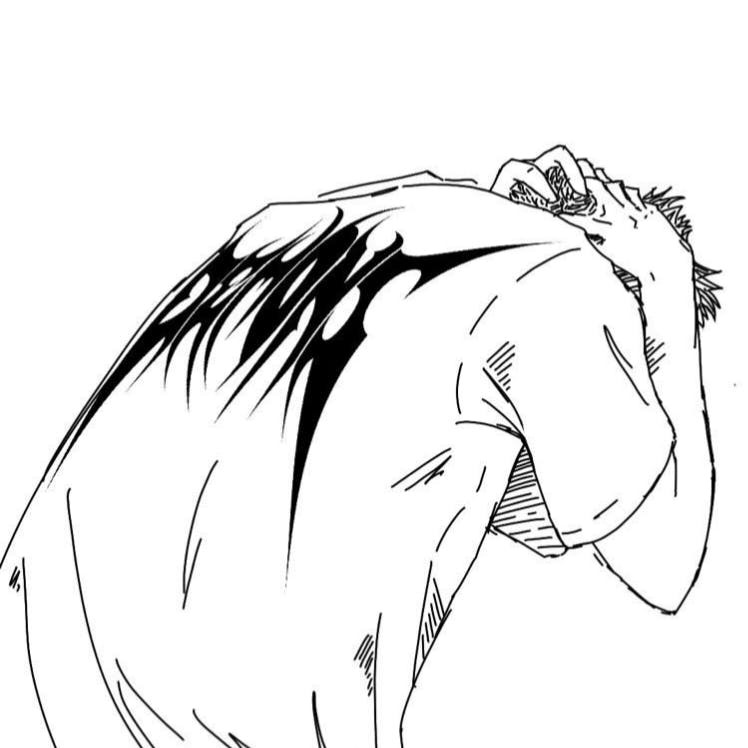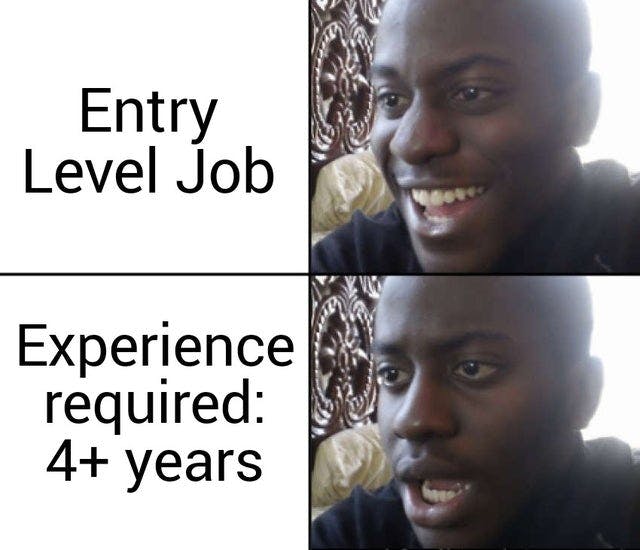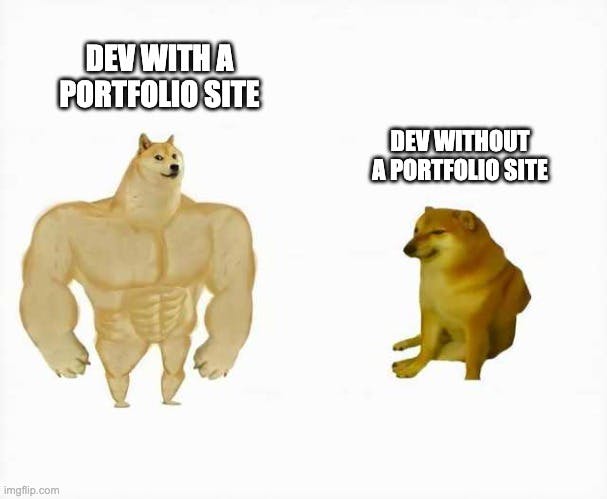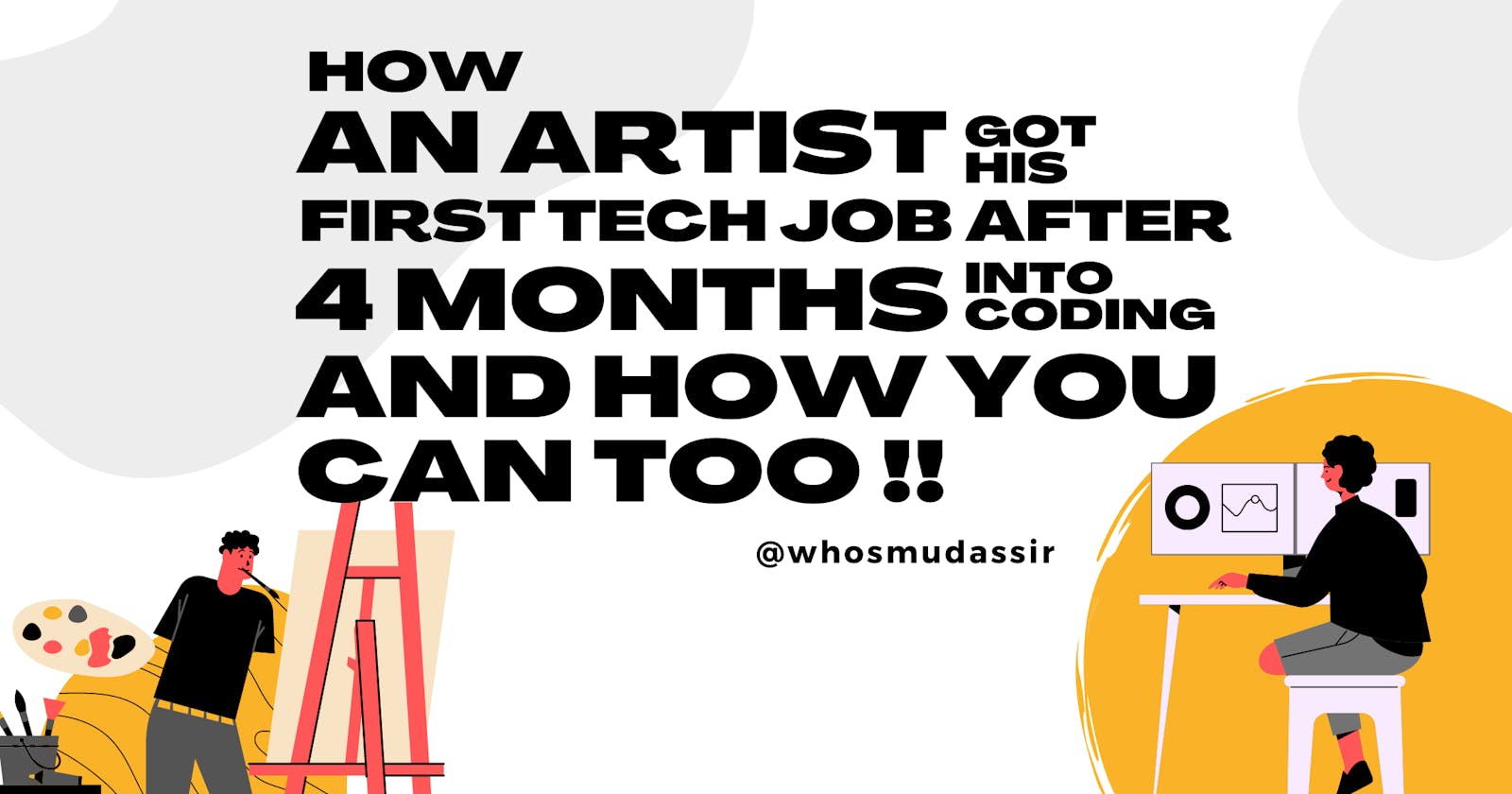How an artist got his first tech job after 4 months into coding and how you can too !
Along with a roadmap + bunch of resource's + few helpful tips to keep you ahead of the competition 😉
Hey there 👋 ! I've been into art since i was a kid and wanted to make a living out of it, So naturally, I started my own clothing line and after putting my heart and soul into it for more than a year, I ran out of funds and had to put a pause on that.
 Initial sketch of my brand's logo tee*
Initial sketch of my brand's logo tee*
This made me take up coding and after just 4 months of writing my first line of code and 5 projects later, I landed my first job as a frontend developer with a startup.
Now after one entire year into it, I sure can lay down few tips for you to get started.
😎 How i got a job ?
1st & 2nd month
Started with w3 schools docs, I was stuck at HTML and CSS for a while, buying bunch of udemy courses, I was feeding myself alot of unnecessary stuff that wasn't needed to get started, you know where this is going, right ? Yep, I didn't finish any of those courses too. Later, while learning JavaScript, I built a small quiz game.
3rd & 4th month
Started with learning ReactJs on YouTube. I quickly joined couple of dev communities on discord. There was this challenge in one of the community's called "T-minus 5" meaning to build 5 projects in 5 weeks. That pushed me to build 5 projects using ReactJs, Redux and Firebase in 5 weeks. All these apps were having CRUD functionalities and were connected to Firebase.
During this, i was actively applying for jobs everywhere. And soon, bunch of interviews later, i was able to get into this well known startup.

🤑 How you can get a job ?
Figuring out your tech stack and role 🤔
Try out couple of stuff, look into trending and on demand tech stacks in the market, LinkedIn is the best place for that. Stick with a single language if you feel overwelmed.
Docs, Udemy, YouTube, Bootcamps ? 🤯
I'd suggest get a taste of whatever you want to learn on YouTube first, before spending on any bootcamps or even a udemy course.
Few of my favourite channels are
Roadmap to learn frontend 🧭
And if you want to get into web dev, then you're in luck, because I've got you covered with all the resources you'll need right here in this playlist, I created.
More about the playlist and roadmap in my previous blog
Advertise, then apply 🌐
All of your projects, no matter how small, must be hosted and running. Post about it on LinkedIn, Twitter, write blogs about it, don't forget about your GitHub profile. Then and only then, start applying for jobs everywhere.
💪 How to strengthen your portfolio?
Projects that are relevant to the job description 💻
Always remember that you need to show diversity in your projects but let the first focus be on the one's that are relevant to the tech stack that's in the job's description.
Build portfolio worthy projects 🌈
Whatever tech you learn, make sure that you have a proof of your work.
Here's a playlist with portfolio worthy projects, for you to get started.
Simple portfolio site ✨
 A portfolio site is a must and resist the temptation to do things just because you can, and instead focus on the things that actually add value to your website.
A portfolio site is a must and resist the temptation to do things just because you can, and instead focus on the things that actually add value to your website.
That’ll help you skip the unnecessary features and add-ons and instead keep the most important thing in the spotlight: your work.
Take advantage of your homepage 🏠
You only get one chance to make a first impression, and this is exactly why the homepage of your portfolio carries so much weight.
Believe it or not, people are going to form an impression of your website after only 50 milliseconds (yes, that’s a real measure of time!). So, your homepage needs to immediately make the following clear:
- Who you are
- What you do
🤗 Few other tips
Stick to one tech ⚙️
One tech at a time, try not to learn multiple languages or frameworks at the same time. Doing so can break the flow and create confusions.
Resume 📃
Keep it single paged, simple and straight forward. Just like this section.
Join dev communities, actively ask questions 🌍
Find communities related to your tech stack. Twitter, Discord are good places to start with.
Avoid burnouts 🔥
Last but not the least and the most important of them all, don't overwork, it's ok to take breaks.
👀 Stay tuned for the next blog
It's gonna be about - " Helpful online tools to self-improve as a developer "
This article is an entry for the hashnode's #4articles4weeks challenge, so please share this article everywhere, it might help someone who's willing to get into tech and also give this article a lot of reactions (👍,👏,💓...anything you want).
And let me know what other points/tips you think might help others, in the comments.
